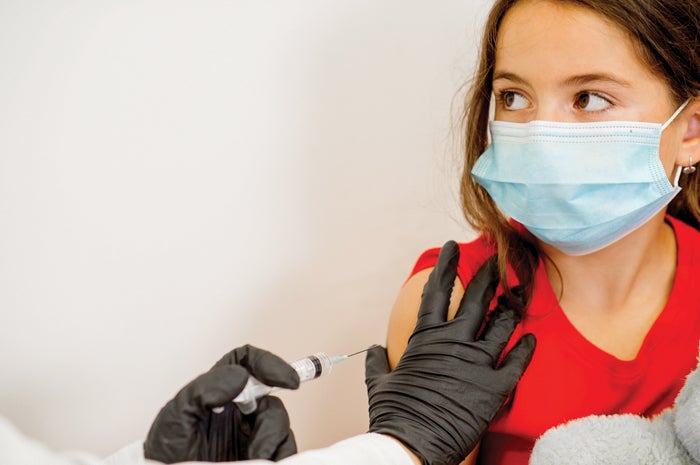How to handle kids afraid of shots as we head into flu season
Published 12:00 am Thursday, December 3, 2020
|
Getting your Trinity Audio player ready...
|
By Greg Sullivan
Novant Health
Kids’ reactions to getting flu shots at certain ages can range from simple apprehension to total terror. And most kids, like plenty of adults, fear shots at some point in their lives. And with COVID-19 amping up everyone’s anxiety levels, it may be making things even harder this year. Bottom line: Get the flu shot. It’s how you protect your children, and those they come in contact with.
Dr. Soren Johnson, a pediatrician at Novant Health, provided insight for parents on how to handle taking their child in for this year’s flu shots — including what not to do — when the process is sometimes not an easy one.
And remember: Parents shouldn’t have COVID-19 safety concerns during a visit to their pediatrician. Novant Health providers are using creative ways to continue in-person visits. In some cases, a vaccine can be administered in the parking lot while the child is in his or her car seat. As an added precaution, clinics have designated certain entrances and office hours for well and sick visits. Cleaning and disinfecting are top priorities at every Novant Health location, too.
Do kids outgrow fear of shots?
Fear of shots is almost universal because — let’s face it — shots hurt! But not every child is the same. Ages 3 to 6 tend to have the most anxiety about it beforehand. Most kids start to realize as they get older that immunizations don’t actually hurt all that badly and the immunizations only take a couple seconds.
Most children by about 10 years old can handle getting shots without much fussing or worry. Rarely, some kids never seem to outgrow the anxiety over getting immunizations. But every once in a while we have kids ask to get a shot! Yes, really!
Are there any proven techniques to make children more at ease with getting shots?
We use simple methods to alleviate pain from shots. Generally it helps minimize pain if the child does not watch the actual injection. It also helps alleviate pain to apply firm pressure to the injection site, or rub nearby firmly. There are some gadgets marketed to distract from pain by applying a strong vibration near the injection site, but in our experience these products are not terribly effective.
We work very hard to make sure kids are comfortable in our office no matter what is going on. Toddlers tend to have some anxiety about shots, and for them distraction is often helpful. A short video on a smartphone can help, and counting or singing a favorite song is a great strategy for parents.
Are there creams and patches available to make the traditional shot easier for kids?
There is a numbing medicine that can be applied to the skin to help minimize pain, but it is not very effective for immunizations. It only numbs the skin surface and not the muscle underneath, and it also takes 30 to 45 minutes to work. In some kids, having the numbing cream may relieve anxiety about the shot, and in others it only increases anxiety.
How important is it that parents try to encourage their kids to get flu shots even if the child says they don’t want one?
If possible, parents should always help to comfort their child and acknowledge that it’s OK to be worried and acknowledge that pain is not fun. But it’s also important for parents to try to let the child know that the parent thinks the shot is a good idea. Staying healthy and strong is important. Immunizations are not punishments.
If my child asks why they need a flu shot, what’s the best answer?
Tell them the flu shot is a special type of medicine that stops an illness called influenza from making you sick at all. Tell them the good part is you won’t get sick from the flu. The bad part is it hurts for a second, sort of like a hard pinch. It hurts a lot less than a bee sting, and it is over in one second.
Are there any major “don’ts” for parents?
Please do not lie to your child and tell them there will not be any shots at their visit if you know it’s time for a flu shot or other immunizations. It’s always important for children to know they can trust their parents and trust their doctor. If they ask you about it prior to the visit and you know they will be very anxious, you can always try to delay with, “We’ll have to see what the doctor recommends.”
It’s OK to tell a child you’ll give them a reward or prize if they sit still for the shot, but don’t tell your child not to cry — it’s OK to cry if it hurts! Do not shame a child for a natural aversion to pain.
Can my child get the flu from the flu shot?
No, it is medically impossible to get the flu from a flu shot. The flu shot contains inactivated pieces of the flu virus that cannot cause influenza. You are much more likely to get the flu each year than you are to be unlucky enough to have a serious side effect from the flu shot.




